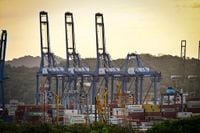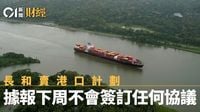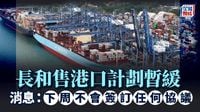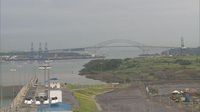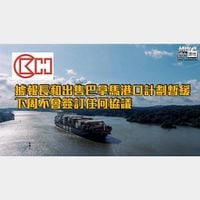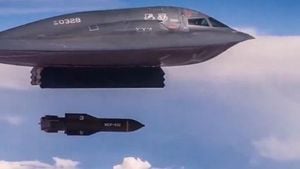In a significant development, Cheung Kong Holdings has decided to postpone the sale of its Panama Canal port operations, originally scheduled for final agreement before April 2, 2025. This decision comes amidst rising political tensions and criticism from Chinese authorities regarding the transaction.
Sources close to Cheung Kong revealed that the transaction documents will not be signed next week, as previously planned. When questioned about the reasons behind this delay, the source cryptically stated, "Everyone knows the reason!" This comment hints at the underlying political pressure influencing the decision.
Cheung Kong, led by the prominent businessman Li Ka-shing, had announced plans to sell a total of 43 global port operations, including two located in Panama, to a consortium spearheaded by American investment firm Stonepeak. The sale was expected to generate approximately $19 billion (about HK$148.2 billion) for the company.
However, the deal has faced intense scrutiny from Chinese state media, which has labeled the transaction as damaging to national interests. Articles published by the Hong Kong and Macao Affairs Office have criticized Cheung Kong's actions, suggesting that the company is prioritizing profit over patriotism. On March 13, 2025, these offices reprinted commentary from Ta Kung Pao, questioning whether Cheung Kong's motivations were solely financial and accusing the company of betraying the Chinese people.
Further commentary on March 15, 2025, emphasized that great entrepreneurs should be patriots, warning against aligning with foreign politicians, particularly those from the United States. This sentiment was echoed in subsequent articles, which raised alarms about the implications of such a sale for national interests and urged businesses to remain aligned with the country.
On March 26, 2025, another report from Ta Kung Pao indicated that the planned sale had sparked considerable public debate. Voices from various sectors of society cautioned businesses against neglecting national interests, asserting that such disregard could lead to self-destruction.
In light of the escalating criticism, it was reported that Chinese authorities had instructed state-owned enterprises to suspend any new collaborative efforts with Li Ka-shing's family. This directive, issued by high-ranking officials, is believed to stem from concerns regarding the potential fallout from the Panama port sale.
As the situation develops, Cheung Kong is reportedly in discussions with the Hong Kong government to find a reasonable solution. However, the options appear limited. Stopping the transaction could incur significant financial penalties and provoke severe political repercussions, while proceeding with the sale could lead to losses for both the company and the nation.
The State Administration for Market Supervision has also weighed in on the matter, confirming on March 28, 2025, that it will conduct an anti-monopoly review of the port transaction to safeguard market competition and protect public interests. This review is part of the agency's broader mandate to ensure fair practices in the marketplace.
Financial commentators have expressed concern about the broader implications of this situation for Hong Kong's business environment. Li Shi-min, a noted economic analyst, remarked, "If even Li Ka-shing is in trouble, who else won't be?" This sentiment reflects a growing anxiety among investors and business leaders regarding the increasing intertwining of politics and commerce in the region.
As Cheung Kong navigates these turbulent waters, the outcome of the Panama port sale remains uncertain. The company's decision to postpone the agreement highlights the complex interplay of business interests and political pressures in contemporary China.
In conclusion, the Cheung Kong saga serves as a reminder of the challenges faced by businesses operating in a politically charged environment. Stakeholders are left to ponder the long-term effects of such pressures on Hong Kong's reputation as a global financial hub.
